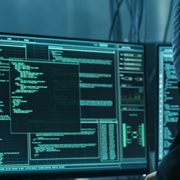Foreign State Sponsored Hacking Is A Problem For U.S.
While watching the evening news last night, I was immediately drawn to one of their leading segments announcing that the U.S. issued several indictments against Chinese Military officers alleging their involvement in cyber-criminal activities against American companies. The segment went on to say that, in one instance an American manufacturer that produced solar panels was negatively impacted when their computer systems were hacked and confidential plans stolen. Suddenly, the market was flooded with cheap imitation imports from China forcing the company to close one of its factory due to lost business and displacing American workers.
Foreign state-backed corporate espionage directly hurts American companies and our economy. It is a problem that has been going on for years and has greatly increased recently. No company is immune, no matter the size. If you have proprietary processes that would be of interest to competitors you may be targeted by a Foreign State-sponsored organization. In many instances, foreign government hackers steal sensitive data from American companies and pass those secrets to companies in their own countries to advance their own economies.
How are these cyber break-ins perpetrated? Some are direct attacks with a hacker manually probing a target’s systems to gain entry. Others are the result of social engineering techniques such as spearphishing, which is a targeted attack against a single organization often appearing to come from someone inside the company and asking for access information to secure files and systems.
Foreign state-sanctioned hacking is a big problem since their operations are well funded and governments have access to the best talent available. Many times, a targeted company doesn’t even know their proprietary information was stolen until it’s too late and irreparable damage has been done.
As formidable as this problem is, there are some things you can do:
- Educate all of your employees on social engineering: what it is, how to recognize when it’s happening, what company information is confidential, and the importance of immediately reporting incidents. Ongoing education programs should be implemented.
- Make sure that all confidential documents and data are only saved to your server. Sensitive documents should never be kept on individual workstations.
- Anti-virus and anti-malware programs should be up-to-date and active on all computers.
- All systems should be password-protected. Passwords should never be kept in documents on workstations, or written down and kept in unsecure areas.
- Business systems should be managed and maintained by a Managed Services Provider (MSP) like XSolutions. An MSP can provide maximum system protection and react quickly when attacks are discovered, minimizing damage.
- Businesses should have an IT Disaster Recovery Plan (BDR) in place should systems become inoperable from the result of a cyber-attack.
If you would like to discuss IT security and Backup Disaster Recovery options for your company, please feel free to call us at (845) 362-9675.











